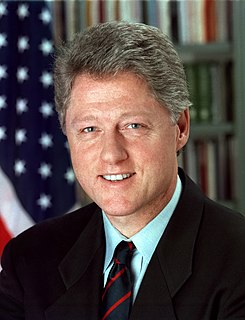
William Jefferson Clinton is an American politician who served as the 42nd president of the United States from 1993 to 2001. Prior to his presidency, he served as governor of Arkansas and as attorney general of Arkansas (1977–1979). A member of the Democratic Party, Clinton was known as a New Democrat, and many of his policies reflected a centrist "Third Way" political philosophy. He is the husband of former secretary of state, former U.S. senator, and two-time candidate for president Hillary Clinton.

A veto is the power to unilaterally stop an official action, especially the enactment of legislation. A veto can be absolute, as for instance in the United Nations Security Council, whose permanent members can block any resolution, or it can be limited, as in the legislative process of the United States, where a two-thirds vote in both the House and Senate will override a Presidential veto of legislation. A veto may give power only to stop changes, like the US legislative veto, or to also adopt them, like the legislative veto of the Indian President, which allows him to propose amendments to bills returned to Congress for reconsideration.

In the United States, a federal executive order is a directive issued by the president of the United States that manages operations of the federal government. [See below for a discussion of executive orders issued by governors of each state.] The legal or constitutional basis for executive orders has multiple sources. Article Two of the United States Constitution gives the president broad executive and enforcement authority to use their discretion to determine how to enforce the law or to otherwise manage the resources and staff of the executive branch. The ability to make such orders is also based on express or implied Acts of Congress that delegate to the President some degree of discretionary power.
A pocket veto is a legislative maneuver that allows a president or another official with veto power to exercise that power over a bill by taking no action.

Robert Sargent Shriver Jr. was an American diplomat, politician and activist. As the husband of Eunice Kennedy Shriver, he was part of the Kennedy family. Shriver was the driving force behind the creation of the Peace Corps, and founded the Job Corps, Head Start, and other programs as the "architect" of the 1960s "War on Poverty." He was the Democratic Party's nominee for vice president in the 1972 presidential election.

Warren Minor Christopher was an American lawyer, diplomat, and politician. During Bill Clinton's first term as president, Christopher served as the 63rd Secretary of State.
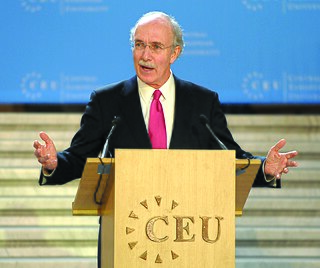
John Howard Francis Shattuck is an international legal scholar and human rights leader. He served as the fourth President and Rector of Central European University (CEU) from August 2009 until July 31, 2016. He is a senior fellow at the John F. Kennedy School of Government, and he joined the faculty of Fletcher School of Law and Diplomacy in January 2017.
The right of (legislative) initiative is the constitutionally defined power to propose a new law (bill).
A publicly funded election is an election which is funded with federal tax and/or income tax.

The 863 program or State High-Tech Development Plan was a program funded and administered by the government of the People's Republic of China intended to stimulate the development of advanced technologies in a wide range of fields for the purpose of rendering China independent of financial obligations for foreign technologies. It was inspired by the Strategic Defense Initiative proposed by U.S. President Ronald Reagan in 1983, and was ended in 2016.
Paul D. Gewirtz is the Potter Stewart Professor of Constitutional Law at Yale Law School and the Director of the Paul Tsai China Center at Yale.
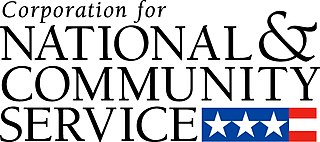
The Corporation for National and Community Service (CNCS) is a U.S. federal government agency that engages more than five million Americans in service through AmeriCorps, Learn and Serve America, Senior Corps, and other national service initiatives. The agency's mission is to "support the American culture of citizenship, service, and responsibility". While a government agency, CNCS acts much like a foundation and is the nation's largest annual grant maker supporting service and volunteering. CNCS, formerly known as the "Corporation for National Service" or "CNS," was created as an independent agency of the United States government by the National and Community Service Trust Act of 1993.
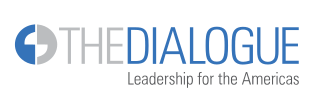
The Inter-American Dialogue is a U.S.-based think tank in the field of international affairs primarily related to the Western Hemisphere. Headquartered in Washington, D.C it intends to "foster democratic governance, prosperity, and social equity in Latin America and the Caribbean". The Dialogue's research areas focus on the rule of law, education, migration, remittances, energy, climate change and extractive industries.
The Constitution Project is a non-profit think tank in the United States whose goal is to build bipartisan consensus on significant constitutional and legal questions. Its founder and president is Virginia Sloan. The Constitution Project’s work is divided between two programs: the Rule of Law Program and the Criminal Justice Program. Each program houses bipartisan committees focused on specific constitutional issues.

David Allen Gewirtz is an American journalist, author, and U.S. policy advisor who has written more than 900 articles about technology, competitiveness, and national security policy. Gewirtz was featured on The History Channel television special The President's Book of Secrets, which detailed secret information privy only to the President of the United States. He currently serves as director of the U.S. Strategic Perspective Institute.
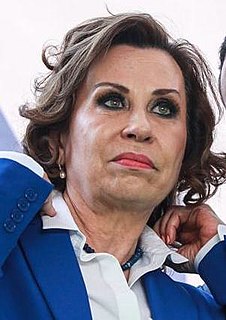
Sandra Julieta Torres Casanova is a Guatemalan politician who was First Lady of Guatemala from 2008 to 2011 and unsuccessful candidate for president in 2015 and 2019.

Capricia Penavic Marshall served as Chief of Protocol of the United States from 2009 to August 2013.
The World Justice Project (WJP) is an international civil society organization with the stated mission of "working to advance the rule of law around the world".
Rule of Law Initiative may refer to:

Nita A. Farahany is an Iranian-American professor and scholar on the ramifications of new technology on society, law, and ethics. She currently teaches Law and philosophy at Duke University where she is the founding director of Duke Science and Society as well as a chair of the Bioethics and Science Policy MA program. She is active on many committees, counsels, and other groups within the law and bioethics communities with a focus on technologies that have increasing potential to have ethical and legal issues. In 2010 she was appointed by President Obama to the Presidential Commission for the Study of Bioethical issues.